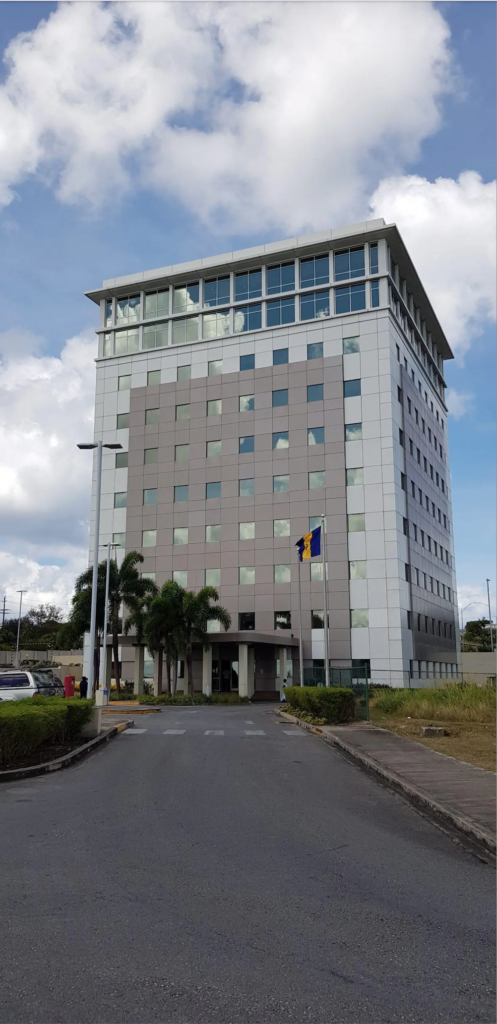St. Philip North MP Leads Protest Against Land Tax Increase in Barbados

July 13, 2024
St Philip North MP Dr Sonia Browne leads a protest against significant land tax hikes affecting property owners with over two acres in Barbados. The Barbados Revenue Authority reclassifies properties, causing tax bills to surge up to 250%.
St Philip North MP Dr Sonia Browne is spearheading a protest movement against substantial increases in land tax rates affecting property owners with two or more acres.
The Barbados Revenue Authority (BRA) has reclassified numerous properties from residential to agricultural use, resulting in tax bill increases of up to 250 per cent for some landowners. The government backbencher, herself affected by the change, is calling on citizens to join the protest.
“I think this is worth fighting and I intend to keep fighting until there is some resolution, hopefully favourable to us. I can’t take this anymore,” Dr Browne told Barbados TODAY. She added: “I would like to invite anybody in Sandford, throughout St Philip and the rest of the island to reach out to me. I want us to go as a group and demand change. This is the only way I can see that we can affect change, we need to come together as a group and object.”
The controversy stems from the BRA’s decision to correct what it terms a previous error in classification. Kevindale Carter, the BRA’s land valuation and assessment technical specialist, explained in a letter to a resident that properties of two acres or more are now required to pay 0.95 per cent on the improved value of their land, in line with agricultural rates.
Carter wrote: “The Development Planning Office (DPO), formerly the Town and Country Development Planning Office (TCDPO) determines land use in Barbados. These lots are all classified as agricultural land by the DPO. All lots 2 acres or more in developments have been determined by the DPO as agricultural land. The Barbados Revenue Authority does not classify lands, but values and taxes are based on the DPO classification.
“When these lots are vacant they are valued and taxed as agricultural lands. That should not change because a house is built on the land. The department erred in changing the category from agricultural to residential for those with houses. This error is now being corrected,” Carter said, adding that there is a “50 per cent rebate available to those that use the land to produce agriculture for sale”.
The reclassification has led to dramatic increases in tax bills. Some residents who previously paid just over $400 or $3 000 are now facing bills of over $4 500 or $8 300 respectively.
Dr Browne, who raised the issue in Parliament in March, said she was directed to the BRA but received “little to no response”. She eventually sought an agricultural rebate but still received a bill for $8 300, which she “detested paying”.
Peter Bradshaw, a neighbour of Dr Browne, saw his land tax bill jump from $427 to $4 512. He reports that objections from residents have been unsuccessful, leading them to contact the Office of the Ombudsman. Bradshaw expressed concern about mounting fees for non-payment, with his bill now exceeding $9 000.
The issue appears to be affecting homeowners in mainly rural districts throughout the island including Blowers, St James; Frere Pilgrim, Christ Church; and Friendship, St Lucy, Barbados TODAY has learned. But some residents are reluctant to object publicly, fearing victimisation.
Critics of the policy change argue that it contradicts the Land Tax Act. Section 6A states: “Where a person owns land on which a dwelling house is erected and the dwelling house is used exclusively as a residence, that person shall pay tax at the rate specified under Section 6(1).”
In March, Carolyn Williams-Gayle, BRA’s manager of communications and public relations, issued a statement saying the authority was “in the process of bringing tax rates for properties up to date with their prescribed usage”. She added that landowners seeking to change their land usage classification would need to apply to the Planning and Development Department.
The statement read in part: “With reference to land usage, the Land Tax Act makes reference to property owners of land under agricultural use who may have a dwelling house on that property, and in referencing the agricultural rebate, the Land Tax Act CAP78A (8A)(3) states that land that is under cultivation is not to be treated as not being used exclusively for agricultural purposes by reason only of the fact that a dwelling house or other building is erected thereon.
“The Barbados Revenue Authority’s remit is to value and tax the land according to the prescribed land usage. As land usage determinations are made, we have been working on bringing the tax rates for properties up to date with the prescribed usage. This is an ongoing process. Any application in respect to a change of land usage would have to be made with the Planning and Development Department.”
As the controversy continues, Dr Browne and her fellow protesters are vowing to “fight until the end”, believing that collective action will force the government of which she is a member to address the issue.
(sheriabrathwaite@barbadostoday.bb)


